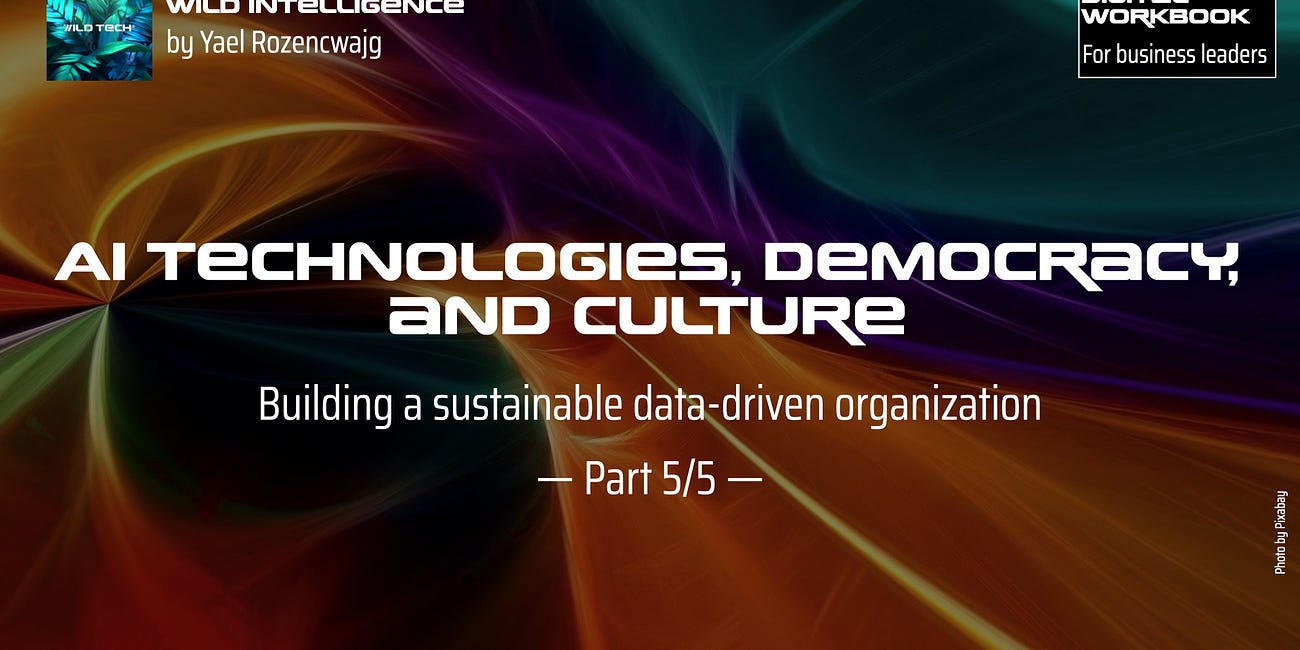🎲 Why data analysis is important (and why most people misunderstand it)
AI data and trends for business leaders: #2024-05 | AI systems series
Why data analysis is important?
Data analysis plays a role in making more scientific decisions and helping businesses operate more effectively.
It is the process of inspecting, cleansing, transforming, and modeling data to discover useful information, inform conclusions, and support decision-making.
Data analysis has multiple facets and approaches, encompassing diverse techniques under various names, and is used in different business, science, and social science domains1.
There are several phases to the analysis of data that can be distinguished:
Data requirements,
Data collection,
Data processing,
Data cleaning,
Exploratory data analysis,
Modeling and algorithms,
Data product,
Communication.
Since the launch of ChatGPT, debates have been raging, particularly within the tech field, about whether ChatGPT will replace data analysts, data scientists, or data engineers.
According to The Future of Jobs Report 2023 by the World Economic Forum, there will be a creation of 58% new jobs in the field of big data analytics.
Why most people misunderstand data
📌 Fact 1
There are many different approaches to presenting data and statistical analyses, and how they are given can make a meaningful difference.
An organization must communicate its data clearly to an audience so everything runs smoothly. It is easy for people to lose interest or misunderstand when data is not precise or not stated in a context.
📌 Fact 2
For a business, knowing how to effectively source, store, and manage its data is the first and foremost essential step in being able to utilize it properly.
These simple preparatory stages will make everything more straightforward and ensure the organization gets the most accurate and impactful results for growth or scale.
📌 Fact 3
Data literacy is reading, understanding, creating, and communicating data as information. Much like a general concept, data literacy focuses on the competencies of working with data.
However, it differs from the ability to read the text since it requires specific skills involving reading and understanding data.
About your business
What is needed to succeed with data
Define data, its purposes, and how it is effectively collected.
Understand the practicalities of working with data, its storage, and management.
Develop strategies to present and communicate data as information using visualizations, summaries, and descriptive statistics.
Understand, interpret, and evaluate data using knowledge of its limitations and appropriateness.
What are the expected outcomes
1. Gain greater insight into target markets
2. Enhance decision-making capabilities
3. Create targeted strategies and marketing campaigns
4. Improve operational inefficiencies and minimize risk
5. Identify new product and service opportunities.
Continue exploring
Workbook: Building a sustainable data-driven organization, part 5
Hello, This workbook is a non-technical tool for structuring early conversations across the multiple roles needed to implement a Human-AI interactions when building a sustainability-focused system. You can find more about this in part 1. We are sharing the workbook on Substack as an inclusive tool for our premium members. It will be available for sale via our various platforms and website.
🎲 Data and trends
You are receiving this email because you signed up for Wild Intelligence by Yael Rozencwajg. Thank you for being so interested in our newsletter!
Data and trends are part of Wild Intelligence, approaches and strategies.
We share tips to help you lead, launch and grow your sustainable enterprise.
Become a premium member, and get our tools to start building your AI based enterprise.




